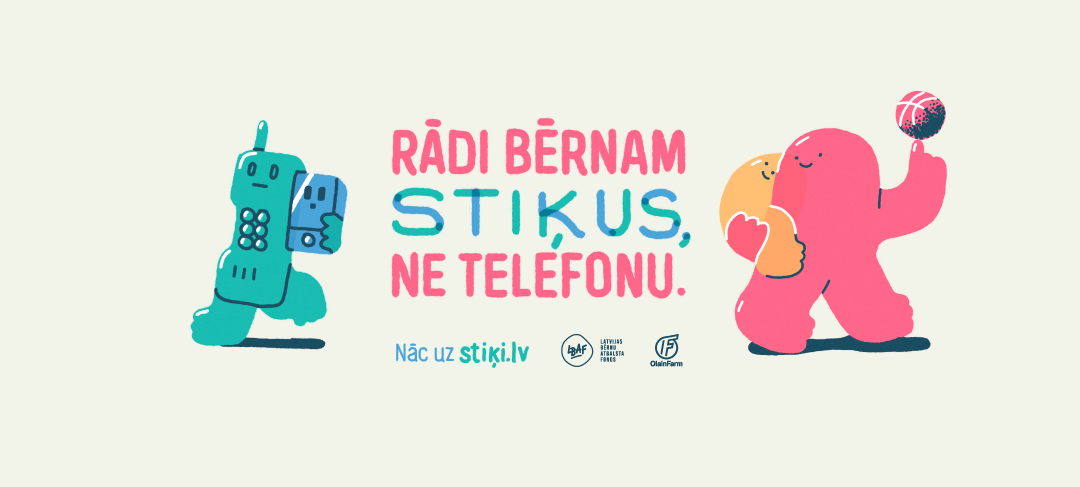Only about one in ten Latvian parents, or 12%, use special content blockers to ensure their children do not have access to content that is not appropriate for their age. Worryingly, only 16% of mums and dads whose children are under six use this option. Although there has been much talk in the public space about both meaningful and safe use of information available on the Internet, almost half (45%) of parents admit that their control mechanism is trust, trusting that children will know and be able to evaluate what content is right for them, according to the survey conducted by the Latvian Child Support Fund (LBAF) in cooperation with Olainfarm JSC and research company Norstat.
According to the survey, 61% of children spend more than three hours a day on screens and most often smart devices are used for entertainment. 44% of parents surveyed reveal that their children watch cartoons or video clips available on different websites on their phone or tablet, while 33% – play games. Relatively only 6% of parents said their children use smart devices for learning.
“The survey shows that children and young people use smart devices most often for entertainment and to waste time. Smart devices have unfortunately become digital babysitters or pacifiers for many parents. But it has to be said that parents themselves also sin with this and tend to be on screens when they could be spending time with their children. Because I’m a dad myself, I know and understand that parents have so much to do, and there are times when the only way to get things done is by giving a child a smart device. But parents should definitely control what content and how long a child is consuming, as this can have a huge impact on the child’s behavior and also mental health,” stresses Kaspars Markševics, head of LBAF.
He calls in particular on parents to use technology to make sure that children and young people do not access content that is inappropriate for their age, which can pose risks ranging from access to age-inappropriate content such as violence or pornography, to physical danger if personal information or photos are passed on to internet “friends” that can be used for a variety of purposes, including fraud.
LBAF provides a 10-month social rehabilitation service “The Way to Yourself” for children with behavioral disorders and communication difficulties. As K. Markševics says, screen addictions are increasingly causing behavioral problems in children, and several families have already taken advantage of the social rehabilitation services offered by LBAF, which are available free of charge to residents of Riga.
“There are studies around the world on how children’s use of smart devices from an early age affects their future development. As children grow up, two important skills suffer: communication with other people, and how children cope with difficulties. This means that the child or young person may find it difficult to integrate into society and communicate with peers. Manifestations can range from behavioral disorders to severe communication difficulties – complete isolation. To change this, we need awareness and strong parental involvement. Dealing with the consequences can be much harder than limiting the use of smart devices in early childhood. Yes, sometimes it requires parents to step up and give up something so important to them, but having fun and getting everyone excited about spending time together is a priority. Changing screen time to “together time” will be a good long-term investment in the child’s all-round development, building healthier family relationships and helping to build much-needed capacity to overcome difficulties on the way to future goals,” says Aldis Miglinieks, family psychotherapist and Olainfarm’s Head of Work Effectiveness.
To encourage parents and children to put their smart devices away more often, LBAF, in cooperation with JSC Olainfarm, is implementing a social campaign “Let your child have fun with you, not with the phone!” (Rādi bērnam stiķus, ne telefonu!), which encourages people to spend quality time with their children. The LBAF website www.stiķi.lv has 22 ideas for fun and exciting activities you can do with your child.
